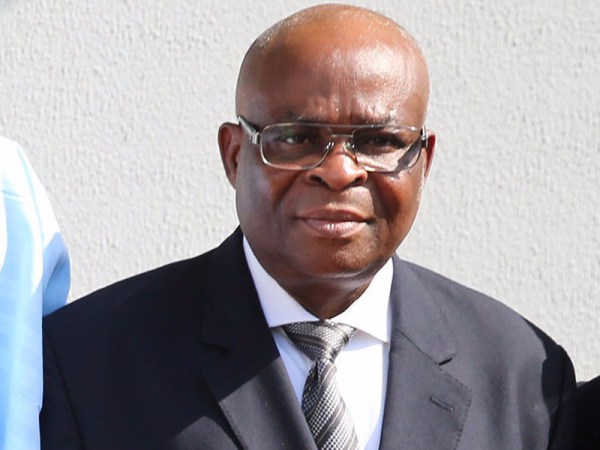Following President Muhammadu Buhari’s decision to extend his medical vacation indefinitely in the United Kingdom, an air of uncertainty has fallen over the judiciary and the country at large over the fate of the acting Chief Justice of Nigeria (CJN), Justice Walter Onnoghen, whose tenure in an acting capacity will expire on Friday.
Despite the recommendation of the National Judicial Commission (NJC) to the president that he be appointed the substantive CJN after Justice Mahmoud Mohammed’s retirement in last November, his position as the most senior justice of the Supreme Court and by convention next in line, Buhari ignored the recommendation and appointed Justice Onnoghen as the acting CJN for a tenure of three months.
Should the president fail to send his name to the Senate for confirmation as the substantive CJN before his tenure in an acting capacity lapses on Friday, Justice Onnoghen from Cross Rivers State and the first southerner to become eligible for the position in 30 years, will become ineligible.
Accordingly, all eyes will be on acting President Yemi Osinbajo in the next five days to decide whether Justice Onnoghen’s name should be sent to the Senate as the substantive CJN, or allow it to lapse.
Reacting to the development, a former President of the Nigerian Bar Association (NBA), Mr. Olisa Agbakoba (SAN), said the problem surrounding Justice Onnoghen’s appointment stemmed from the NJC, which has been emasculated and has not fully exercised its constitutional powers.
Speaking to newsmen, he said the process of appointing a CJN starts with the Federal Judicial Commission (FJC), which draws up a shortlist of three justices for consideration for the post in order of seniority and sends the list to the NJC.
“Once the NJC gets the list, it makes its recommendation to the president, and constitutionally, the president can either accept or reject the person that has been recommended to him as the CJN.
“He cannot make the person recommended by the NJC the acting CJN because there is no provision in the constitution for that.
“The only time the president can appoint an acting CJN is in the event the substantive CJN becomes incapacitated, or is forced to step down before the end of his tenure for charges of corruption or misdemeanor.
“So he had no powers to appoint Justice Onnoghen the acting CJN, as the constitution only allows him to accept or reject the recommendation of the NJC.”
Agbakoba blamed the situation that has arisen on the erosion of powers of the NJC resulting from its indecisiveness and red tape over the corruption allegations against some Supreme Court justices and other members of the bench.
“Due to the corruption charges which have tainted the judiciary, the NJC has lost its voice; it is completely timid and has allowed its constitutional authority to be eroded,” he said.
Agbakoba cautioned that should Osinbajo allow Justice Onnoghen’s tenure to lapse without sending his name to the Senate for confirmation as the substantive CJN, the issue of who will become the next CJN would become a matter of conjecture.
However, another past President of the NBA, Chief Wole Olanipekun (SAN) was of the view that Osinbajo as the acting president has the full powers to either send the name of Justice Onnoghen to the Senate or re-appoint him in an acting capacity.
Olanipekun said under the law, anybody acting as the president, has the full powers of the president to carry out the functions of the president.
He said since it was Osinbajo that sent the name of the acting EFCC Chairman, Ibrahim Magu to the Senate for confirmation last July, he could equally send the name of Justice Onnoghen to the senate on Buhari’s behalf.
“He has the full powers under the law to send the Justice Onnoghen’s name to the Senate or re-nominate him for another three months. Don’t forget that it was in Buhari’s absence that Magu’s name was sent to the Senate. If he could do that then, he can do same for Onnoghen,” he said.

